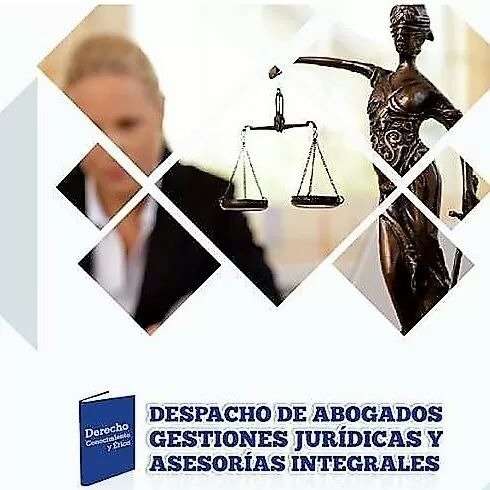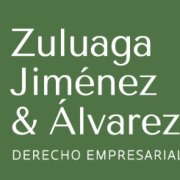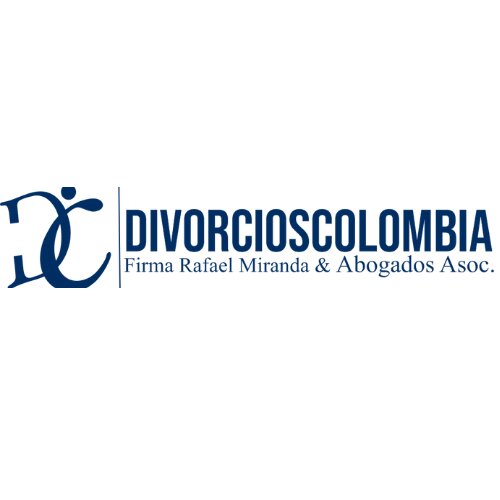Best Natural Resources Lawyers in Colombia
Share your needs with us, get contacted by law firms.
Free. Takes 2 min.
Or refine your search by selecting a city:
List of the best lawyers in Colombia
About Natural Resources Law in Colombia
Colombia is endowed with a rich variety of natural resources, including vast forests, fertile soils, an abundance of water resources, and significant deposits of coal, oil, and gold. Natural resources law in Colombia governs the use, conservation, and management of these resources, balancing economic development with environmental conservation. The country’s legal framework is designed to regulate activities that might impact these resources, from mining and oil exploration to deforestation and water use.
Why You May Need a Lawyer
There are many scenarios in which you might require the expertise of a lawyer specializing in natural resources in Colombia. These include navigating the complexities of obtaining licenses and permits for mining or agricultural activities, defending against claims of environmental damage, or understanding and complying with evolving environmental regulations. Legal assistance is also crucial in conflict resolution between communities and companies, ensuring that agreements and negotiations are conducted in accordance with the law.
Local Laws Overview
Colombian law on natural resources is defined by several key statutes and regulations. The Constitution of 1991 lays a strong foundation for environmental protection and recognizes the right to a healthy environment. Key laws include the General Environmental Law (Law 99 of 1993), which establishes principles for sustainable development and the National Environmental System. The Mining Code regulates mineral exploitation, while the Renewable Energy and Efficient Energy Law promotes sustainable energy practices. Regulations also exist for the preservation of biodiversity and the sustainable use of water resources.
Frequently Asked Questions
What are the main legal documents required to start a mining operation?
To start a mining operation, you need a concession contract, an environmental license, and compliance with the Mining Code regulations.
Are there special considerations for indigenous communities regarding natural resources?
Yes, indigenous communities in Colombia have special rights, including prior consultation, which must be respected before initiating projects affecting their lands.
How can I legally extract timber in Colombia?
Timber extraction requires a permit from the local environmental authority, compliance with sustainable forest management practices, and obtaining an environmental license if necessary.
What penalties exist for non-compliance with environmental regulations?
Penalties range from fines and suspension of activities to revocation of permits and criminal charges against individuals responsible for environmental damage.
Can foreigners own natural resources in Colombia?
While foreigners cannot own natural resources, they can obtain the rights to explore, extract, and commercialize these resources through concession agreements and partnerships.
What steps are involved in obtaining an environmental license?
The process involves submitting a detailed environmental impact assessment, undergoing public consultations, and receiving approval from the national or regional environmental authorities.
What is the role of the National Environmental Licenses Authority (ANLA)?
ANLA is responsible for granting environmental licenses for activities that may significantly impact the environment, ensuring that projects comply with legal and environmental standards.
How are land conflicts resolved in Colombia?
Land conflicts are typically resolved through legal proceedings, including arbitration and court cases, with mechanisms for negotiation and mediation also available.
What is the Water Law in Colombia?
The Water Law regulates the use and protection of water resources, ensuring their sustainable use and equitable distribution for various stakeholders.
How do I report illegal exploitation of natural resources?
You can report illegal activities to local environmental authorities, the police, or non-governmental organizations focused on environmental protection.
Additional Resources
Several resources can help you navigate the complexities of natural resources law in Colombia. The Ministry of Environment and Sustainable Development provides guidelines and updates on environmental policies. ANLA is critical for environmental licensing. Non-governmental organizations, such as the Colombian Environmental Law Association, also offer resources and support. Additionally, consulting firms and legal practices specializing in environmental and natural resources law can provide tailored advice.
Next Steps
If you require legal assistance with natural resources in Colombia, begin by identifying the specific area of concern, such as mining regulations, environmental compliance, or land rights. Seek out a reputable legal firm with expertise in natural resources law. Schedule a consultation to discuss your issue, gather relevant documents, and prepare questions to understand your rights and obligations fully. Legal aid is instrumental in ensuring compliance and advocating for your interests within Colombia's legal framework.
Lawzana helps you find the best lawyers and law firms in Colombia through a curated and pre-screened list of qualified legal professionals. Our platform offers rankings and detailed profiles of attorneys and law firms, allowing you to compare based on practice areas, including Natural Resources, experience, and client feedback.
Each profile includes a description of the firm's areas of practice, client reviews, team members and partners, year of establishment, spoken languages, office locations, contact information, social media presence, and any published articles or resources. Most firms on our platform speak English and are experienced in both local and international legal matters.
Get a quote from top-rated law firms in Colombia — quickly, securely, and without unnecessary hassle.
Disclaimer:
The information provided on this page is for general informational purposes only and does not constitute legal advice. While we strive to ensure the accuracy and relevance of the content, legal information may change over time, and interpretations of the law can vary. You should always consult with a qualified legal professional for advice specific to your situation.
We disclaim all liability for actions taken or not taken based on the content of this page. If you believe any information is incorrect or outdated, please contact us, and we will review and update it where appropriate.
Browse natural resources law firms by city in Colombia
Refine your search by selecting a city.

















